Table of Contents
What is Share Market Law in Nepal and Why It Matters for Your Business
Share market law Nepal provides the legal foundation that governs how companies can raise capital through public offerings and how investors can trade securities. The Securities Board of Nepal (SEBON) serves as the primary regulatory authority, ensuring market integrity and investor protection through comprehensive oversight mechanisms.
Business owners and entrepreneurs must understand these regulations because they determine how companies can access capital markets, what compliance obligations exist, and how securities transactions are legally structured. Whether you’re planning to go public, considering investment opportunities, or operating a securities business, Nepal’s share market regulations directly impact your business operations.
Understanding SEBON: Nepal’s Securities Market Guardian
The Securities Board of Nepal (SEBON) was established on June 7, 1993, following the first amendment to the Securities Exchange Act 1983. SEBON operates under the Securities Act, 2006, and maintains four key departments: Regulation, Supervision, Commodity Market and Research, and Management and Legal.
SEBON’s Primary Functions
SEBON performs several critical functions that affect business operations:
Market Regulation: SEBON establishes rules for securities issuance, trading, and market conduct. This includes setting commission rates for stockbrokers, which were recently revised with a 10% reduction in stockbrokers’ commission rates effective from May 14, 2081 (Jestha 01, 2081).
Supervision and Enforcement: The board monitors market activities, investigates violations, and ensures compliance with securities laws. This oversight protects both issuers and investors from fraudulent practices.
Licensing and Authorization: SEBON grants licenses to various market intermediaries, including stockbrokers, merchant bankers, and other securities service providers.
Investor Protection: Through regulatory frameworks and enforcement actions, SEBON safeguards investor interests and maintains market confidence.
Securities Act 2063: The Foundation of Nepal Share Market Law
The Securities Act 2063 forms the cornerstone of share market regulation in Nepal. This comprehensive legislation establishes the legal framework for securities markets, defining rights, obligations, and procedures that affect all market participants.
Key Provisions Affecting Business Operations
Public Offerings: The Act specifies requirements for companies seeking to raise capital through public share offerings. This includes mandatory disclosures, registration procedures, and ongoing reporting obligations.
Market Intermediaries: Legal requirements for brokers, dealers, and other intermediaries are clearly defined, ensuring professional standards and ethical conduct in securities transactions.
Insider Trading Prohibitions: The Act establishes strict penalties for insider trading, protecting market integrity and ensuring fair trading conditions for all participants.
Corporate Governance Standards: Public companies must adhere to specific governance requirements, including board composition, audit standards, and shareholder rights protection.
Education Consultancy Registration in Nepal | Travel Agency Registration in Nepal | FDI 2025
Nepal Stock Exchange (NEPSE): Where Share Market Law Comes to Life
The Nepal Stock Exchange (NEPSE) was established in 1994 as the sole stock exchange of Nepal, providing opportunities for investors to invest in enterprises across various sectors while offering companies access to essential capital.
NEPSE Operations and Legal Framework
Trading Mechanisms: NEPSE operates under strict legal guidelines that govern how securities are traded, settled, and cleared. These mechanisms ensure transaction integrity and reduce counterparty risks.
Listing Requirements: Companies seeking NEPSE listing must meet specific criteria established under Nepal’s securities laws, including minimum capital requirements, financial performance standards, and corporate governance benchmarks.
Market Surveillance: Legal frameworks empower NEPSE to monitor trading activities, detect irregular patterns, and coordinate with SEBON for enforcement actions.
Recent Legal Developments in Nepal Share Market Law
Capital Market Reforms and Modernization
SEBON has formed a study committee to assess the issuance of a new stock exchange license and directives for modernizing the Nepal Stock Exchange (NEPSE), following executive, legislative, and judicial endorsements. These reforms aim to enhance market efficiency and attract more participants.
Commission Rate Adjustments
SEBON implemented revised commission rates for stockbrokers starting May 14, 2081, with a 10% reduction in commission rates. This change reduces transaction costs for investors and makes market participation more accessible.
Small and Medium Enterprise Regulations
New regulations specifically address securities issuance and trading for small and medium enterprises, recognizing their unique needs and providing tailored compliance frameworks that balance regulatory oversight with business practicality.
Compliance Requirements for Businesses Under Share Market Law Nepal
Public Company Obligations
Financial Reporting: Public companies must submit quarterly and annual financial statements prepared according to Nepal Financial Reporting Standards. These reports undergo regulatory review and public disclosure requirements.
Corporate Governance Compliance: Companies must establish audit committees, maintain independent directors, and follow prescribed governance practices that protect shareholder interests.
Material Disclosure Requirements: Any information that could significantly affect share prices must be promptly disclosed to SEBON and made available to the investing public.
Private Company Considerations
Pre-IPO Planning: Private companies considering public offerings must begin compliance preparations well in advance, including financial system upgrades, governance structure modifications, and legal documentation updates.
Due Diligence Requirements: Thorough legal and financial due diligence becomes mandatory before any public offering, requiring comprehensive documentation and third-party verification.
Regulatory Approval Processes: Multiple approvals from SEBON, including preliminary approval, final approval, and ongoing compliance certifications, create extensive regulatory touchpoints.
SEBON Licensing: What Businesses Need to Know
Types of Licenses Available
Stockbroker License: Required for intermediaries facilitating securities transactions between buyers and sellers. This license involves stringent capital requirements and professional qualification standards.
Merchant Banking License: Necessary for entities providing underwriting, advisory, and other investment banking services to companies seeking capital market access.
Securities Dealer License: Required for entities trading securities for their own account or providing market-making services.
Licensing Process and Requirements
Capital Requirements: Each license category has specific minimum capital requirements that applicants must maintain throughout their operations.
Professional Qualifications: Key personnel must demonstrate relevant qualifications and experience in securities markets, often requiring specific certifications or examinations.
Infrastructure Standards: Licensed entities must maintain adequate technological infrastructure, risk management systems, and operational procedures meeting SEBON specifications.
Legal Rights and Protections for Investors
Investor Rights Framework
Information Access Rights: Investors have legal rights to access material information about listed companies, including financial statements, board resolutions, and other disclosures affecting their investment decisions.
Voting Rights Protection: Shareholder voting rights are legally protected, with specific procedures for proxy voting, shareholder meetings, and resolution processes.
Legal Remedies: Investors have access to legal remedies through SEBON’s complaint mechanisms, civil court procedures, and alternative dispute resolution processes.
Market Manipulation Protections
Price Manipulation Prevention: Legal frameworks specifically prohibit various forms of market manipulation, including wash trading, pump-and-dump schemes, and other deceptive practices.
Insider Trading Enforcement: Strict penalties and enforcement mechanisms deter insider trading, ensuring fair market conditions for all participants.
Market Surveillance Systems: Continuous monitoring systems detect suspicious trading patterns and trigger investigation procedures when violations are suspected.
Penalties and Enforcement Under Nepal Share Market Law
Civil Penalties
Monetary Fines: SEBON can impose significant monetary penalties for violations of securities regulations, with amounts varying based on violation severity and repeat offenses.
License Suspension or Revocation: Serious violations can result in temporary or permanent loss of operating licenses, effectively ending business operations in securities markets.
Disgorgement Orders: Violators may be required to return illegal profits earned through securities law violations, ensuring that misconduct doesn’t provide financial benefits.
Criminal Sanctions
Imprisonment Terms: Serious violations, particularly those involving fraud or market manipulation, can result in criminal charges and imprisonment under Nepal’s legal system.
Asset Freezing: In cases involving suspected violations, authorities can freeze assets to prevent their dissipation during investigation and enforcement proceedings.
Director Disqualification: Company directors involved in securities violations may face disqualification from serving in similar positions for specified periods.
Share Market Law Compliance: Step-by-Step Business Guide

For Companies Planning Public Offerings
Step 1: Legal Structure Review: Ensure your company structure complies with public company requirements under the Companies Act 2063 and Securities Act 2063.
Step 2: Financial System Preparation: Implement accounting systems that meet Nepal Financial Reporting Standards and support required regulatory reporting.
Step 3: Governance Framework Implementation: Establish board committees, independent director positions, and governance policies meeting SEBON requirements.
Step 4: Due Diligence Preparation: Compile comprehensive legal, financial, and operational documentation required for regulatory approval processes.
Step 5: Professional Engagement: Retain qualified merchant bankers, legal advisors, and auditors experienced in Nepal’s securities regulations.
For Existing Market Participants
Ongoing Compliance Monitoring: Establish internal systems to track regulatory changes and ensure continuous compliance with evolving requirements.
Regular Training Programs: Maintain staff training on securities regulations, market conduct rules, and compliance procedures.
Risk Management Systems: Implement comprehensive risk management frameworks addressing operational, legal, and reputational risks.
Common Legal Issues in Nepal Share Market
Disclosure Violations
Many companies struggle with timely and accurate disclosure requirements. Material information must be disclosed promptly, and failure to do so can result in significant penalties and legal liability.
Corporate Governance Failures
Inadequate board oversight, conflicts of interest, and poor shareholder communication create legal risks that can result in regulatory action and investor litigation.
Market Conduct Issues
Inappropriate trading practices, including coordination among market participants and price manipulation attempts, frequently result in enforcement actions and severe penalties.
Future Outlook: Share Market Law Nepal Evolution
Regulatory Modernization Initiatives
Current reform initiatives include assessing new stock exchange licenses and NEPSE modernization directives, supported by multiple government branches. These changes will likely create new opportunities and compliance requirements for market participants.
Technology Integration
Increasing emphasis on electronic trading, digital disclosure systems, and automated compliance monitoring will reshape how businesses interact with Nepal’s securities markets.
International Alignment
Ongoing efforts to align Nepal’s securities regulations with international standards will create new opportunities for cross-border investment and business expansion.
Data Tables: Key SEBON Requirements at a Glance
| License Type | Minimum Capital | Key Requirements | Renewal Period |
|---|---|---|---|
| Stockbroker | NPR 50 Million | Professional staff, technology infrastructure | Annual |
| Merchant Banker | NPR 100 Million | Investment banking experience, capital adequacy | Annual |
| Securities Dealer | NPR 25 Million | Trading systems, risk management | Annual |
| Compliance Timeline | Public Companies | Private Companies | Market Intermediaries |
|---|---|---|---|
| Quarterly Reporting | Financial statements | Not required | Operational reports |
| Annual Disclosure | Comprehensive reports | Limited requirements | Full compliance reports |
| Material Events | Immediate disclosure | Not required | Same day reporting |
Frequently Asked Questions About Share Market Law Nepal
What is the role of SEBON in Nepal’s share market?
SEBON serves as the primary regulatory authority overseeing Nepal’s securities markets, ensuring compliance with securities laws, protecting investor interests, and maintaining market integrity through licensing, supervision, and enforcement activities.
How does the Securities Act 2063 affect my business?
The Securities Act 2063 establishes legal frameworks affecting public companies, market intermediaries, and investors. It defines disclosure requirements, governance standards, and compliance obligations that directly impact business operations in securities markets.
What are the penalties for violating share market laws in Nepal?
Violations can result in monetary fines, license suspension or revocation, criminal charges, imprisonment, and asset freezing. Penalties vary based on violation severity and repeat offenses.
How can I ensure my company complies with SEBON regulations?
Establish comprehensive compliance systems, engage qualified legal and financial advisors, maintain updated governance frameworks, and implement regular monitoring procedures to ensure ongoing regulatory compliance.
What licenses do I need to operate in Nepal’s share market?
License requirements depend on your business activities. Stockbrokers, merchant bankers, and securities dealers each require specific licenses with different capital and operational requirements.
Where can I find current information about share market regulations in Nepal?
SEBON’s official website provides updated regulations, circulars, and guidance documents. Professional legal advisors specializing in securities law can provide current compliance guidance.
Conclusion: Navigating Share Market Law Nepal Successfully
Share market law in Nepal creates a comprehensive regulatory framework that protects investors while enabling businesses to access capital markets efficiently. Understanding SEBON regulations, compliance requirements, and legal obligations is essential for any business owner or entrepreneur considering securities market participation.
The evolving nature of Nepal’s securities regulations, including ongoing modernization initiatives and capital market reforms, requires continuous attention to regulatory developments. Businesses that proactively address compliance requirements and maintain strong governance practices will be best positioned to benefit from Nepal’s growing capital markets.
Whether you’re planning a public offering, seeking investment opportunities, or operating as a market intermediary, professional legal guidance remains invaluable for navigating the complexities of Nepal’s share market law. Stay informed about regulatory changes, maintain robust compliance systems, and engage qualified advisors to ensure your business operates successfully within Nepal’s securities regulatory framework.
Ready to navigate Nepal’s share market regulations? Contact qualified legal professionals specializing in securities law to ensure your business complies with current requirements and positions itself for future opportunities in Nepal’s evolving capital markets.
Corporate Biz Legal & Company Darta Nepal is a trusted law firm in Nepal, providing expert company registration services in Nepal with full legal compliance and professional support.




